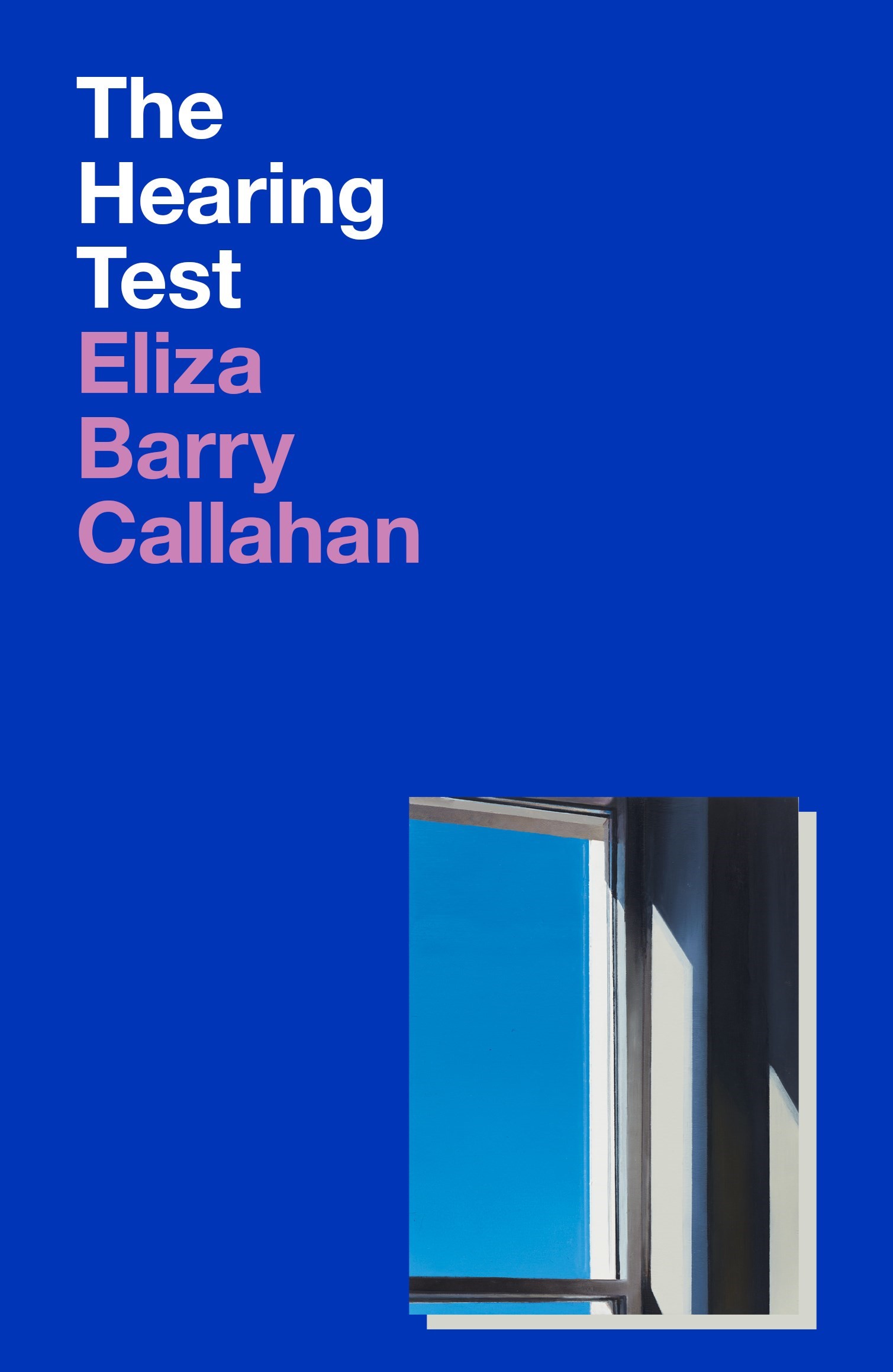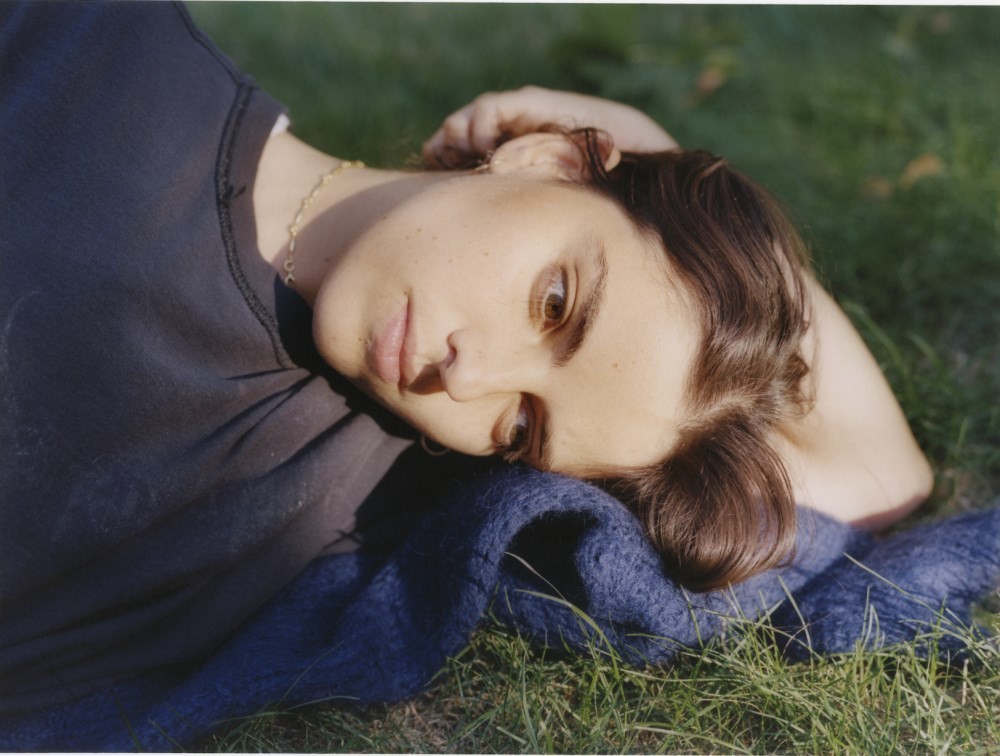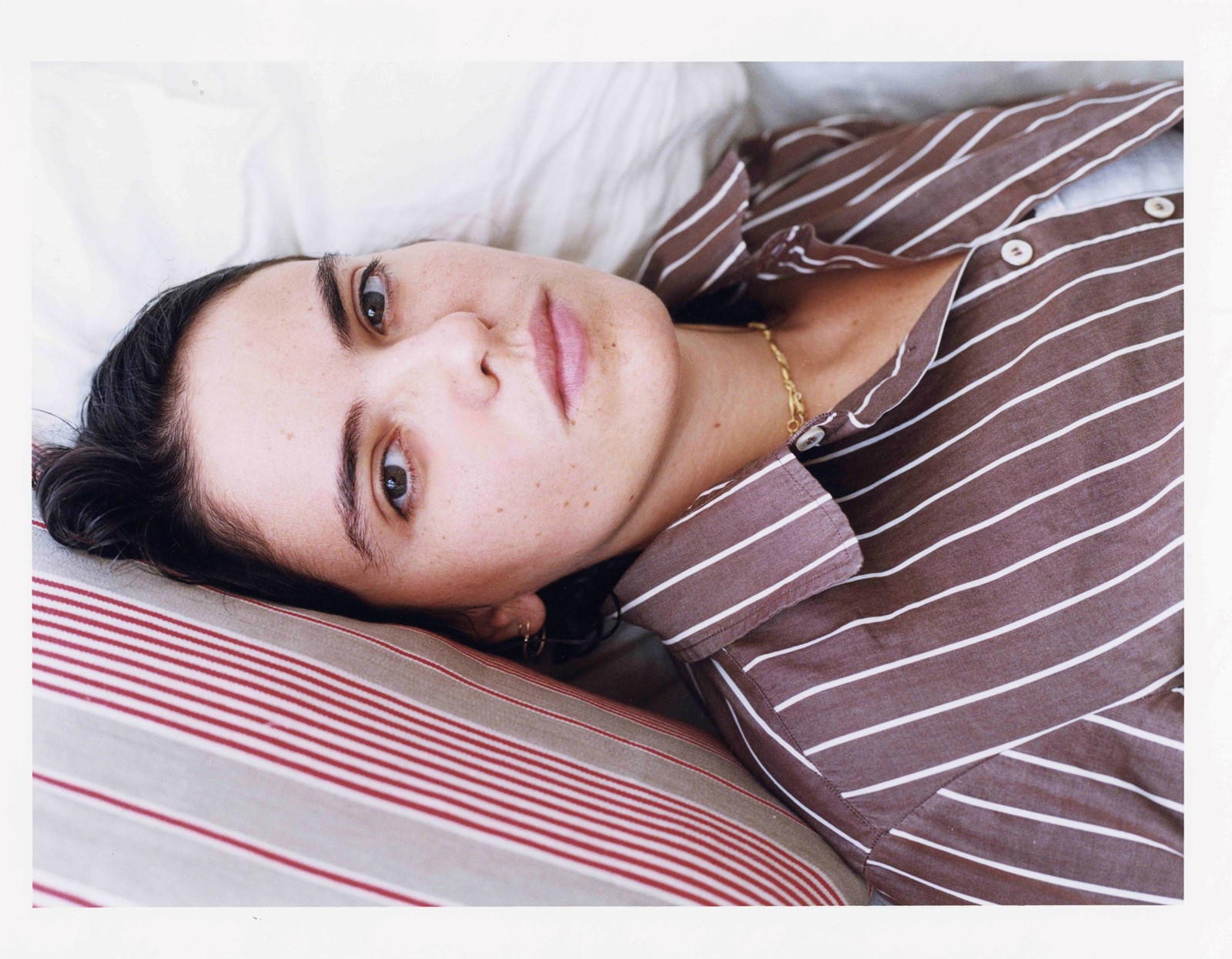The name of Eliza Barry Callahan’s debut novel, The Hearing Test, initially made me a little ambivalent about reading it. The premise was interesting – a New York-based artist in her late twenties awakes to a deep drone in her right ear, accompanied by a sound akin to a “large piece of sheet metal being rocked, a perpetually rolling thunder.” She is diagnosed with Sudden Deafness (cause unknown) and so begins an experiential record of the year that follows. An autofictional project (Callahan herself was diagnosed with Sudden Deafness a couple of months before the pandemic set in), the jacket blurb promised a narrative propelled by encounters with strangers, friends and professionals, and ruminations on the lives and work of artists, musicians, etc.
It’s just that, for me ‘Hearing Test’ evokes something clinical-sounding, and perhaps overtly medical. I anticipated a book that would acutely catalogue looming deafness though that might be a little on the dry side – but I could not have been more wrong. An original, extraordinarily vivid book that is as much about life, chance and falling out of love, as it is about sickness, The Hearing Test is an invigorating study of the beauty and possibilities of language and representation. “I wanted to name the book Rear Window. But that was apparently going to be really unsearchable and a difficult sell,” says Callahan when we speak over the phone, her in New York, me in London, on the first day of the year that feels like Spring. “In my mind, the book is about watching, and just being a little bit outside of life.”
If the writing of The Hearing Test was prompted by Callahan’s diagnosis (spoiler: she, like the narrator of the novel, is currently in remission), it was also driven by the MFA programme at Columbia, and the encouragement of the writer Kate Zambreno specifically. Callahan, who works across many mediums, made a last-minute decision to study writing over visual and fine art – “I immediately regretted being in the writing program because I thought I didn’t want to write a novel,” she says. “Then I switched into this nonfiction concentration where I met Kate and this group of writers. Kate was immediately really supportive of my work, in a way that I hadn’t ever received.”
Below, Eliza Barry Callahan discusses the appeal of being a novice, writing through experience, and making meaning through coincidence.

Holly Connolly: I want to start at the end of your book. In your acknowledgements, you write, “Thank you to Kate Zambreno for saying, ‘This is a book,’ when it was a three-page essay, and for supporting this project at every turn and twist.” How did that initial essay become The Hearing Test?
Eliza Barry Callahan: The book was originally written in fragments. It was like I tricked myself into writing a book. I had never written anything longer than three or four pages, and I knew that I was thinking of this as a project of duration, almost like a performance where I was going to create these daily little snippets or fragments, and over time those pieces accrued.
At the very beginning, I had written a short essay about what I was going through. It was an experiential log, a sensory note-taking. It wasn’t narrative, I wasn’t thinking at all of narrative. I was actually thinking of the piece as something that could work in any order because I felt that my days didn’t really cohere logically; one wasn’t leading to the next in a way that felt like forward motion. This was just as my hearing was fluctuating. But that shifted once I’d accumulated these ‘tiles’ of writing. I stepped back and thought, ‘There is time here. You can’t escape time. You can’t escape forward movement.’
HC: I found time very interesting in the book, the way it felt expansive at the beginning, when the narrator first receives the diagnosis, and then it speeds up as the book progresses. “When something becomes constant it stops being urgent,” you write. How did you approach structuring time?
EBC: I definitely tried to underscore that when I pieced the writing together for the book, but it was also naturally there. When I was writing, I was really trying to capture ‘sick time’, which I believe is its own kind of time, in the first three quarters of the book. Especially in the beginning, because she’s suddenly thrown into this condition with the diagnosis, I wanted to convey that immediate halting, and then this almost slow-motion existence, that starts to accrue a certain momentum as she grows more accustomed to her situation. Then, when the narrator goes into remission, and she returns, at the end of the book, to being her hearing self, things quite rapidly begin to move more in a non ‘sick time’.
“From a place of remission and recovery, I actually have immense gratitude for the experience of losing my hearing” – Eliza Barry Callahan
HC: You are a writer, artist, filmmaker and musician, and The Hearing Test is rich with the influence of all of these disciplines. At one point you quote the German artist Hanne Darboven: “I am a writer not an artist.” Do you consider yourself to be one thing over the other?
EBC: In a way, I feel uncomfortable claiming any title. I am someone who really likes to make things, and I consider them all to be different projects that are part of one practice – my editor found it weird that I kept referring to the book as a ‘project’. My music has always felt really distinct from the visual, writing and film work that I’ve started to do, though perhaps it will enter the fold more. But yes, I think of my work as a very project-based thing; whatever idea I have, how can I best follow that idea, and how can it live?
People can be allergic to artists working in different mediums. They don’t like people who work in multiple mediums or genres because it’s harder for them to categorise, and there’s the assumption that you’re not an expert if you’re not working at one thing. I love novice-ness, though, and I love being the least experienced person in a room, because you then have the most to learn in that room.
HC: “Illness, injury … are forms of castration,” says the hypnotherapist at one point in the novel. “It makes sense that you would have a desire to erect.” Tell me about how your diagnosis prompted writing. Was it a form of having control?
EBC: In the act of writing, I was really thinking about it as this attempt at meaning-making as a form of survival. Looking for reason in places where reason can’t be made, and arriving at connections that are tenuous, but that somehow begin to take on this radical weight or meaning in a time of desperation. When you’re in a place in which you can’t find reason, or someone can’t tell you why something has happened, you can often tend to create your own closed systems of reason or coincidence. Reason and coincidence actually stand in opposition in some ways, but there’s something that you can glean from coincidences.

HC: This grappling for coincidence in the book also made for an interesting comment on fiction itself. I feel that part of the distinction we’re often meant to draw between fiction and reality (especially when it comes to autofictional projects), is that fiction has a plot and life doesn’t. But the funny thing about life is that all these strange chance things sometimes do come together and add up.
EBC: That’s something that I was really interested in looking at, and was excited to tread the line of, in the book. A lot of people, friends and family, have said, “Is this me? Who is this in the book?” They have a really hard time separating the fiction from the non-fiction.
The sensory experience outlined in the book is totally nonfictional, and I don’t think I would have been able to write the earlier part of the text if I hadn’t experienced, or in real-time logged, this experiential, sensational dailiness. I don’t know that I would have been able to access that point even from today; I wouldn’t be able to remember that when I blinked my eyelids sounded like a head hitting a pillow. So that came from sensory notes that I had made, but the other side of the book is fictional. But, of course, fiction is made up from our lives too.
HC: In some ways The Hearing Test is a book about representation, the ways in which we try to represent experience through sound, image and language and the limits of all three. You often use visual artwork as a metaphor. Can you talk a little about this method of representation?
EBC: There’s a trope (that is a trope because it’s true), that when one sense goes another becomes heightened. I think that my visual attention was so heightened, that there was this visual acuity born out of it. When my hearing came back and I went into remission, it dissipated. It was this funny thing where there was a certain vision that I felt I had access to, and then it did slip away or shift.
From a place of remission and recovery, I actually have immense gratitude for the experience of losing my hearing. In many ways it felt like a year-and-a-half long trip, and it was totally miserable and devastating, but it was also completely fascinating.
The Hearing Test by Eliza Barry Callahan is published by Peninsula Press, and is out now.
